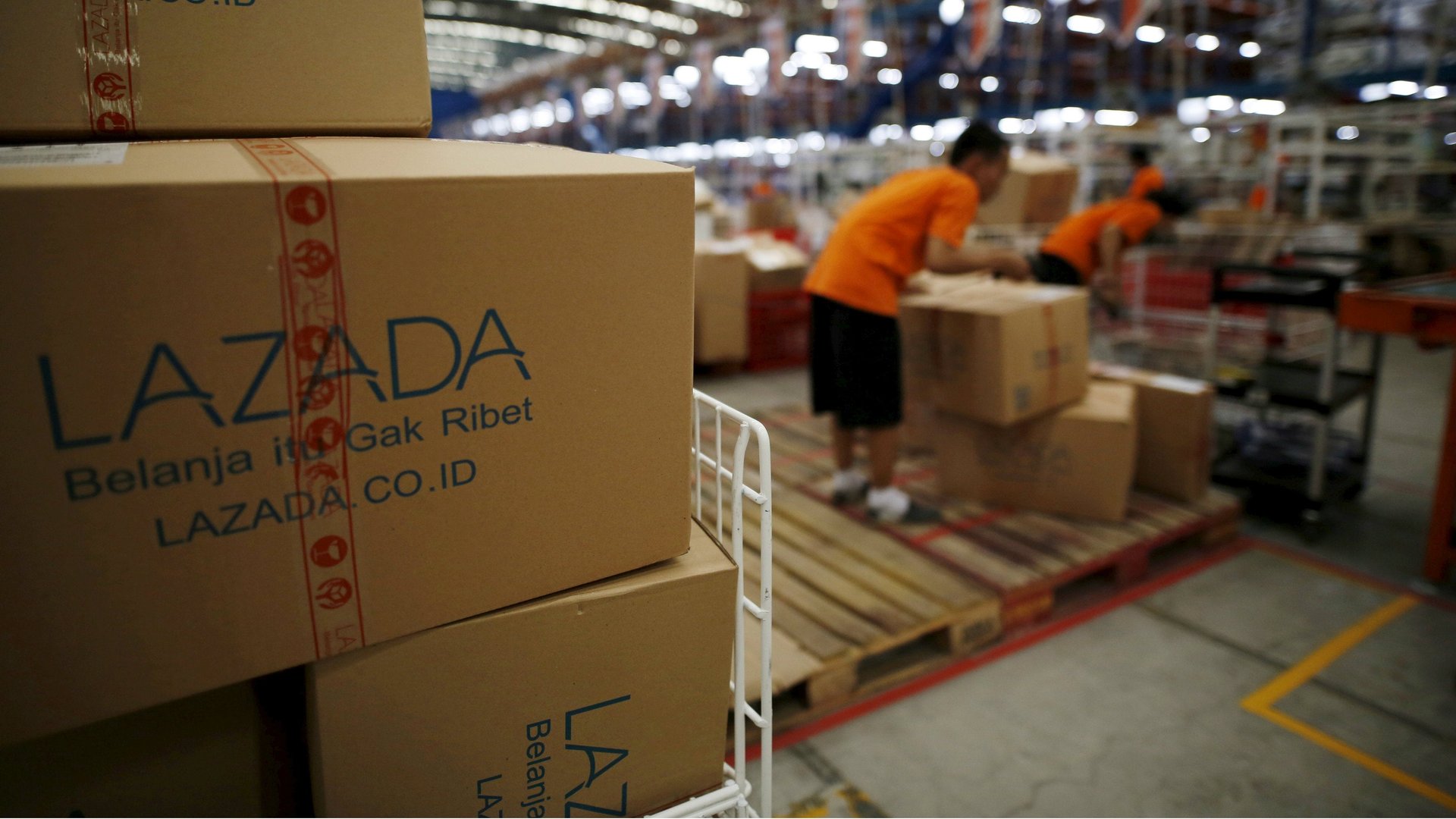Alibaba is doubling down on Southeast Asia as its rivals, including Amazon, are moving in
When China’s Alibaba purchased a 51% stake in Lazada about two years ago, it was betting on one of the few online shopping giants in Southeast Asia. Now the region is becoming far more competitive, prompting the e-commerce juggernaut to get even more involved, announcing today an additional investment of $2 billion in Lazada.


When China’s Alibaba purchased a 51% stake in Lazada about two years ago, it was betting on one of the few online shopping giants in Southeast Asia. Now the region is becoming far more competitive, prompting the e-commerce juggernaut to get even more involved, announcing today an additional investment of $2 billion in Lazada.
The latest round will bring Alibaba’s investment in Lazada to $4 billion. It follows a $1 billion investment last year, which added to its initial $1 billion purchase of a majority stake in Lazada in April 2016. The latter deal signaled that Alibaba, long dominant in China, would enter Southeast Asia by buying an existing player rather than by building a presence there from scratch.
The company has taken measures to involve itself more directly in Lazada’s operations. Over the past year, key leaders from Alibaba have moved over to Lazada, including the former CTO of Alibaba’s business-to-business shopping site. The company today announced that Lucy Peng, one of Alibaba’s 18 co-founders and the current chairwoman of Ant Financial, its financial services branch, will serve as Lazada’s CEO. She’ll replace Maximilian Bittner, who led the company when it was launched under Rocket Internet, the Berlin-based startup factory known for copying successful internet business models in developing markets.
Alibaba’s latest investment comes as competition in Southeast Asia’s e-commerce market heats up. While online shopping accounts for just 4% of overall retail purchases in the region, well below the rate in China and South Korea, tech companies are getting in early and butting heads already. JD, Alibaba’s chief rival back home, competes with Lazada in Southeast Asia via a standalone unit in Indonesia, an investment in domestic e-commerce companies in Vietnam, and a joint venture in Thailand. Meanwhile a Singapore-based rival called Sea, best known for its gaming business, has made an aggressive regional push for its e-commerce site Shopee. Amazon, by comparison, has so far been conservative in Southeast Asia, though it recently launched Amazon Prime in Singapore.
Peng’s appointment hints at what to expect from Lazada as it moves across Southeast Asia under Alibaba’s stewardship. Under her guidance, Ant Financial has become a behemoth in its own right in China. In addition to helping drive the country’s mobile-payments boom via its Alipay wallet app, Ant has filled a void in the finance industry by providing loans to small businesses, as well as to consumers looking for extra spending money and a way to build credit. Ant reportedly has more outstanding loans to the country’s consumers than China’s second-largest bank.
Southeast Asia is even more underbanked than China—only 27% of the region’s 600 million people have bank accounts. Ant Financial has already started forming partnerships (paywall) with local payment companies across the region, and while these deals primarily serve to facilitate transactions to Chinese travelers already equipped with Alipay, they might soon extend to local residents. Making it easier to pay for goods online, after all, encourages more people to shop there in the first place—and it’s the experience with developing-market payments that could help Alibaba edge out Lazada’s fast-encroaching rivals.